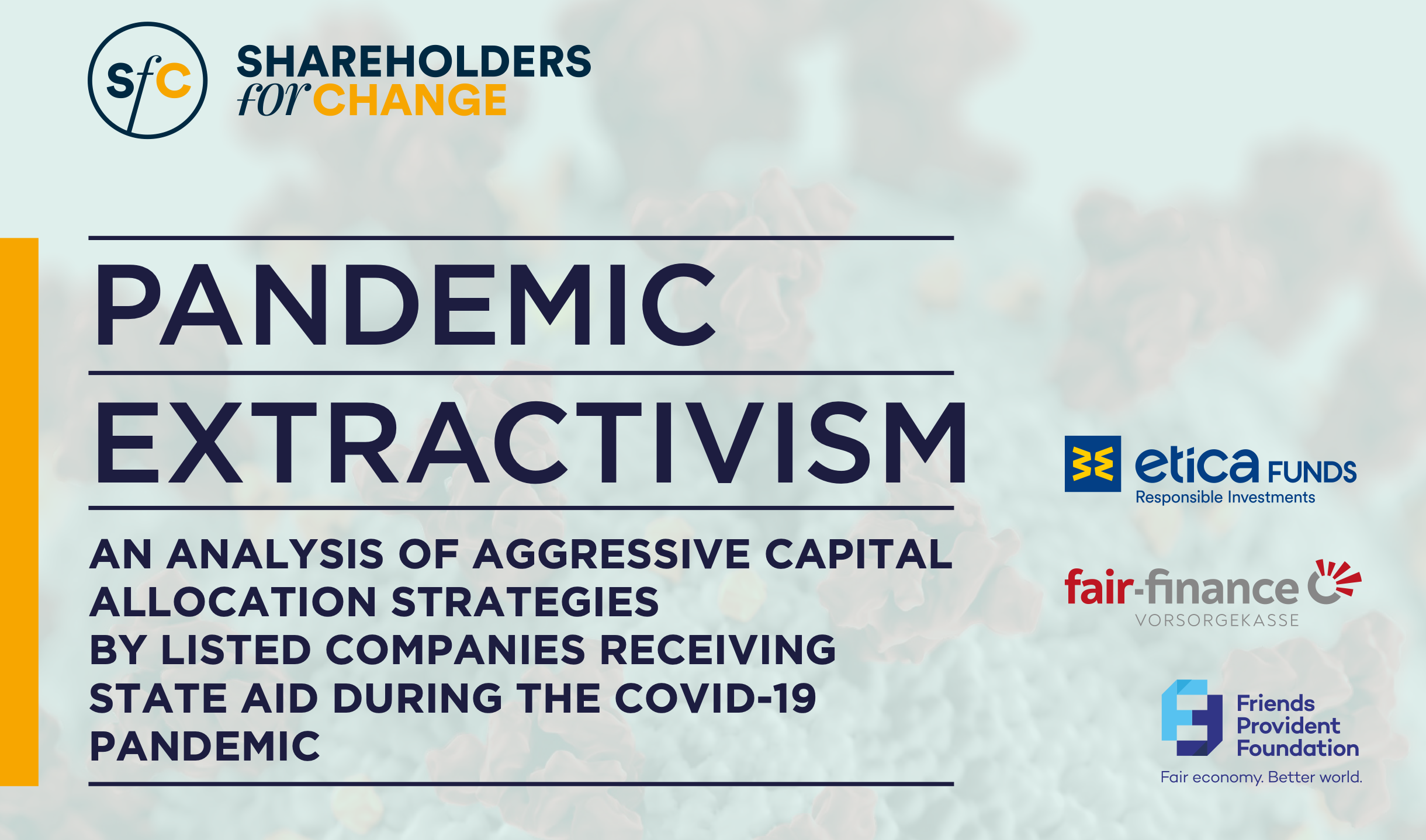Aggressive capital allocation and State-aid for Covid-19 are incompatible

A new research by SfC shows that a number of listed companies received State aid during the pandemic while adopting aggressive capital allocation strategies, e.g. paying high dividends or cutting workforce.
The SfC network will engage the companies identified in the research in the coming months.
According to the research “Pandemic Extractivism”, led by a team of researchers coordinated by Prof. Alessandro Santoro (University of Milan-Bicocca) on behalf of SfC – Shareholders for Change, at least 8 companies received State aid related to the Covid-19 pandemic in 2020 while adopting aggressive capital allocation strategies: EssilorLuxottica, International Consolidated Airlines Group, Unibail-Rodamco-Westfield, TUI, Delta Air Lines, Unicredit, Compass Group and Coltene Holding.
The research team analysed a universe of ca. 320 companies, mostly European blue chips with a relatively good ESG profile. The aim was to identify aggressive capital allocation behaviour in at least two of the following domains:
– Employment trends (i.e. cut in workforce);
– Dividend payments;
– Share buyback programs;
– Tax planning.
“We identified 26 companies as relatively aggressive in terms of capital allocation, then we looked at their financial reports and found that 8 of them had also received State aid in 2020”, says Dr. Michele Rabasco, the leading researcher of the team. “However, information on State aid was generally scarce. Most companies are not reporting according to the GRI (Global Reporting Initiative) Disclosure 201-4: ‘Financial assistance received from government’”.
7 other companies were identified as ‘aggressive’ while receiving State aid non related to the pandemic.
“Based on the results of the research, we will start engaging the identified companies questioning the receipt of State aid in presence of aggressive capital allocation strategies, while asking to improve their accountability and transparency on State aid”, says Aurélie Baudhuin, president of SfC and deputy CEO at Meeschaert Amilton AM, a founding member of the network.
“A company’s capital allocation decisions define the long-term sustainability of its performance. These decisions are even more crucial since the Covid-19 pandemic” – says Aldo Bonati, Corporate Engagement and Networks Manager of SfC member Etica Funds, that co-financed the research. “Tracking metrics such as dividends, share buyback and tax payments helps predict companies’ exposure to reputational risks. In addition, we can infer how these companies have used public resources granted during the pandemic. This is the first report to identify those companies most exposed to capital allocation related risks. It also offers guidance to investors by suggesting monitoring and engagement questions to pose to at-risk companies.”
The engagement of companies will start in June 2022 and continue until December 2023.